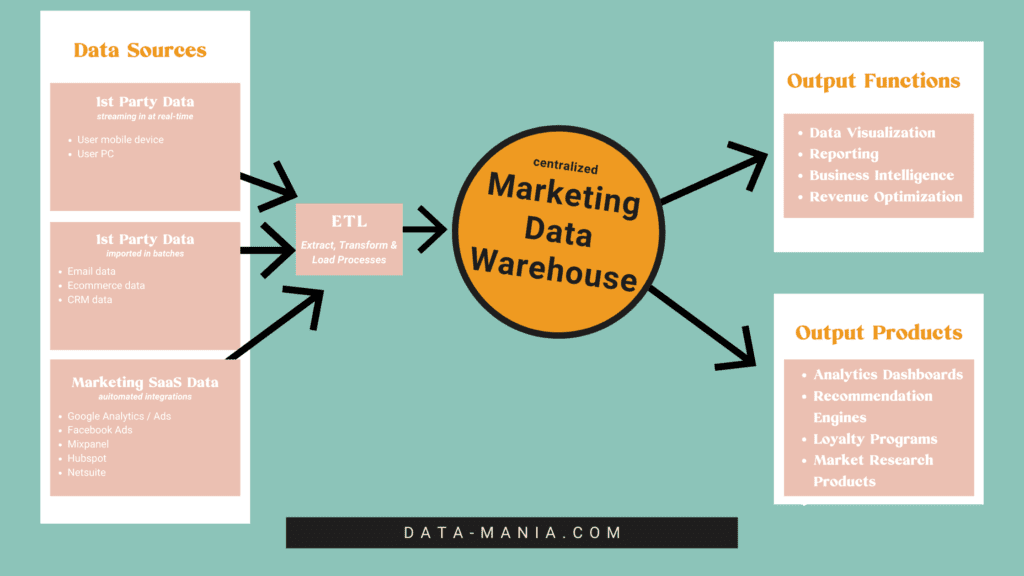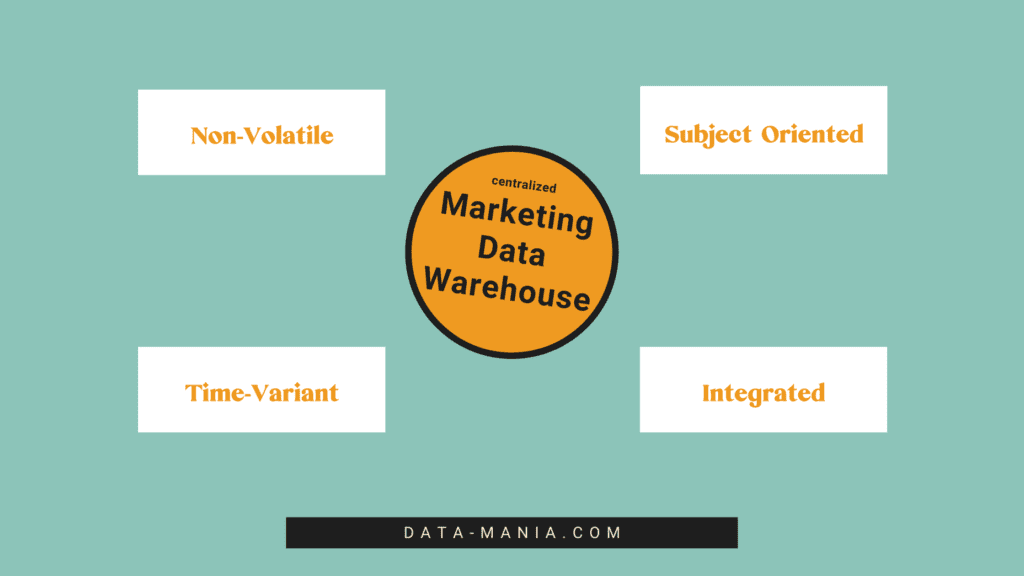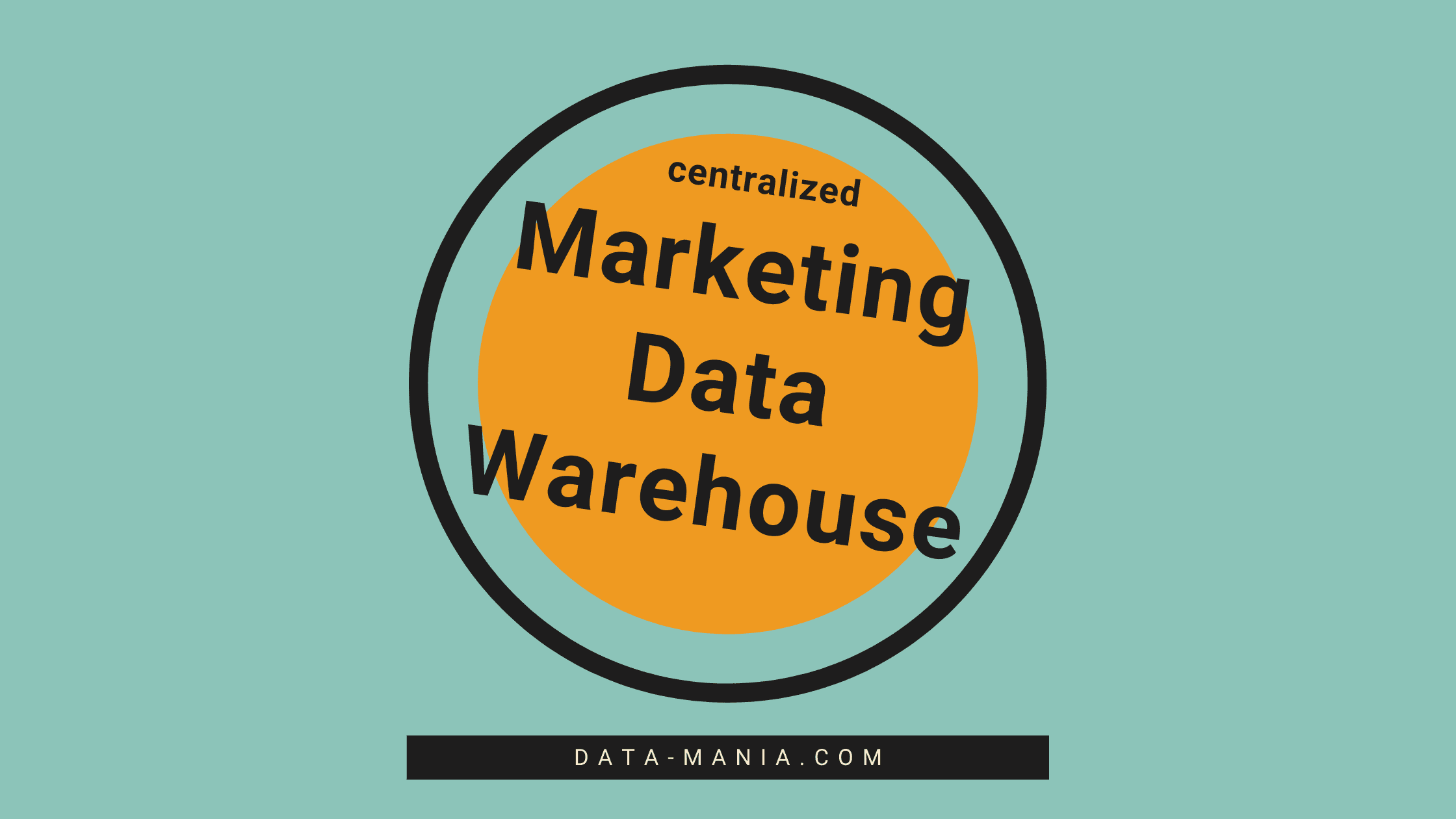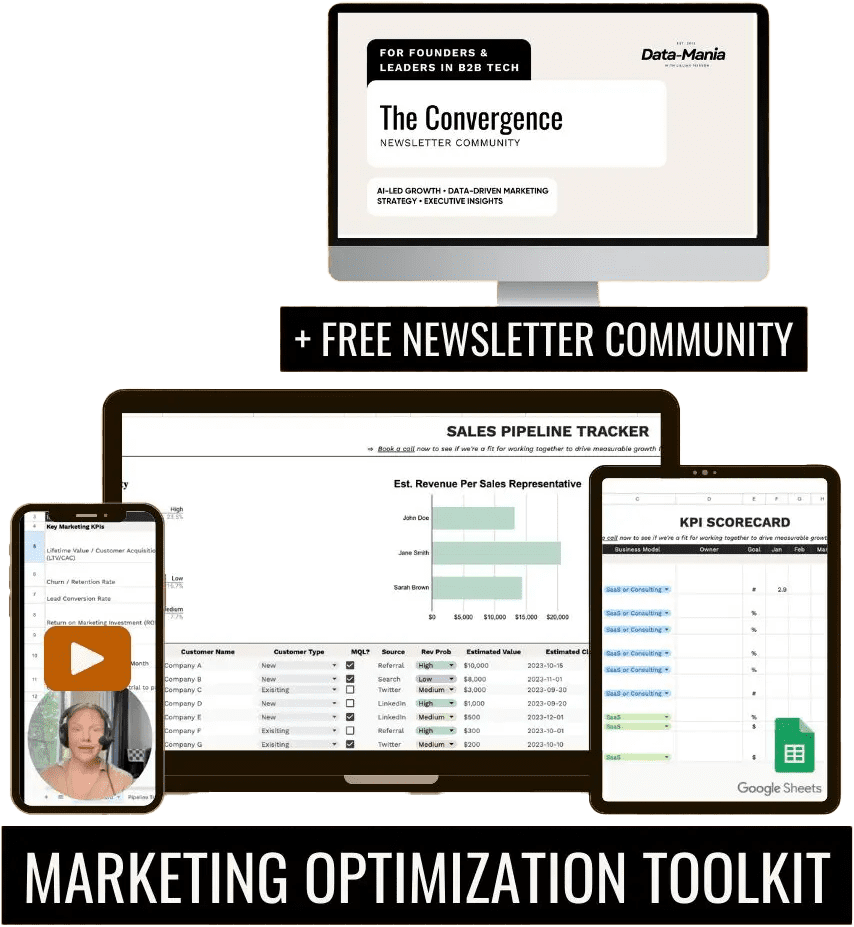If you’re at a small- or medium-sized company that attracts most of its customer online, you NEED a marketing data warehouse – like, yesterday. In this brief article, we’re going to explain what data warehousing is, how it benefits business, and how it improves ROI for marketing operations specifically.
Introduction to Data Warehousing
Cloud-based technologies have taken the business world by storm; allowing companies to easily store and retrieve valuable data about their products, customers, and employees.

This data can be then used to make key business decisions. Based on the insights uncovered by Global Marketing Insights, the Data Warehousing Market is expected to grow at over 12% CAGR (Compound Annual Growth Rate) between 2019 to 2025.
Several global enterprises turned to Data Warehousing to organize their data that streams in from corporate operation centers and branches all over the world. A Data Warehouse is defined as a system that stores data from a company’s Operational Databases along with its external sources. Data Warehouses are different from Operational Databases because they store historical information. This simplifies the analysis of data over a specific period of time. Data Warehouse platforms can also sort data based on varying subject matter, such as business activities, customers, and products.
Understanding the Need for a Data Warehouse
While all of lines of business can be improved with proper data warehousing, marketing operations are particularly ripe for the picking when it comes to the ROI of a Marketing Data Warehouse project.

Data Warehousing has become increasingly more significant since it allows companies to:
- Improve their Bottom Line: Data Warehouse platforms help business leaders quickly access their organization’s historical activities and assess successful or unsuccessful initiatives from the past. This allows executives to identify where they can adjust their strategy to maximize efficiency, increase Sales, and decrease costs to improve the bottom line.
- Ensure Consistency: Data Warehouses are programmed to apply a uniform format to the accumulated data. This makes it easier for corporate decision-makers to share and analyze data insights with their colleagues and around the world. By standardizing data from different sources, you can improve overall accuracy and reduce the risk of error in interpretation.
- Make Better Business Decisions: Successful business leaders develop data-driven strategies and seldom make decisions without understanding the facts first. Data Warehousing improves the efficiency and speed of accessing different datasets. It also makes it easier for decision-makers to draw insights that can guide the Marketing and Business Strategies that make them stand out.
Understanding How Data Warehousing boosts ROI
 Here are a few ways Data Warehousing can help you create an influx for better ROI for your organization:
Here are a few ways Data Warehousing can help you create an influx for better ROI for your organization:
1) Customized Marketing Campaigns
A common reason for the failure of a Marketing Campaign is that it isn’t relevant. If your Marketing Campaigns aren’t created with the needs of your target audience in mind, they will eventually go bust. For instance, if you are showing your kids’ wear ads to bachelors or if your email campaign about buying your new product is sent to subscribers who have already purchased the product. Such Marketing efforts are simply a waste of time and resources. It is important that you analyze Marketing data to Create Marketing Campaigns with customized ad copies, offers, and landing pages, along with helping you scope out channels on which you can run those campaigns.
2) Understanding Your Audience Better
You can get a better understanding of what your target audience expects from your brand with effective data analysis. This can help you customize your Marketing Strategies accordingly. You can also merge your customers’ data from multiple offline and online sources to find what you exactly need to do to bring in more customers to your business. This allows you to create more compelling content and marketing Campaigns like a perfect Marketer.
3) Choosing the Best Channels for Promotion
Marketing data reveals the needs, expectations, and preferences of your potential and existing clients. It also allows you to determine which channels are best for your brand to do the promotion to engage with a larger audience. These insights can help you deliver your brand’s vision statement and message to the target audience and convince them to reach out to you.
4) Improved Connection with your Potential Customers
With the constant influx of Marketing data to your Data Warehouse, you can make optimizations. These can be in both your campaigns and strategies in real time. This ensures optimal performance on various channels. This also creates an influx for a better ROI making its way to you.
5) Boost the Decision-Making Process
Armed with the right data at the right time, you can make integral business decisions accurately and timely. Result-oriented and fast decision-making is the primary focus of boosting Marketing ROI. Faster decisions boost your productivity and lead to faster actions in no time. Increased productivity can save you millions in operational costs.
6) Manage Your Budget
To thrive in the marketing world, you need to make the best use of your limited budget. Big Data can help you invest your Marketing budget in the right target audience and channels. It will also help you to deliver a high Marketing ROI. With the right data at your fingertips, you can easily scale the use of channels that deliver better ROI. Additionally, you can also easily discard the campaigns with a poor Conversion Rate. This allows you to ensure the highest return on an investment made.
If you like all this talk on getting the best marketing ROI for your business, be sure to check out this video on how this Marketing Data Scientist Made $370K in just 18 months!
Conclusion
This blog talks about Data Warehousing and its impact on ROI (Return on Investment) in Marketing Data Science. It also discusses the importance and benefits of a Cloud Data Warehouse before jumping into the various ways Data Warehousing can boost ROI.





